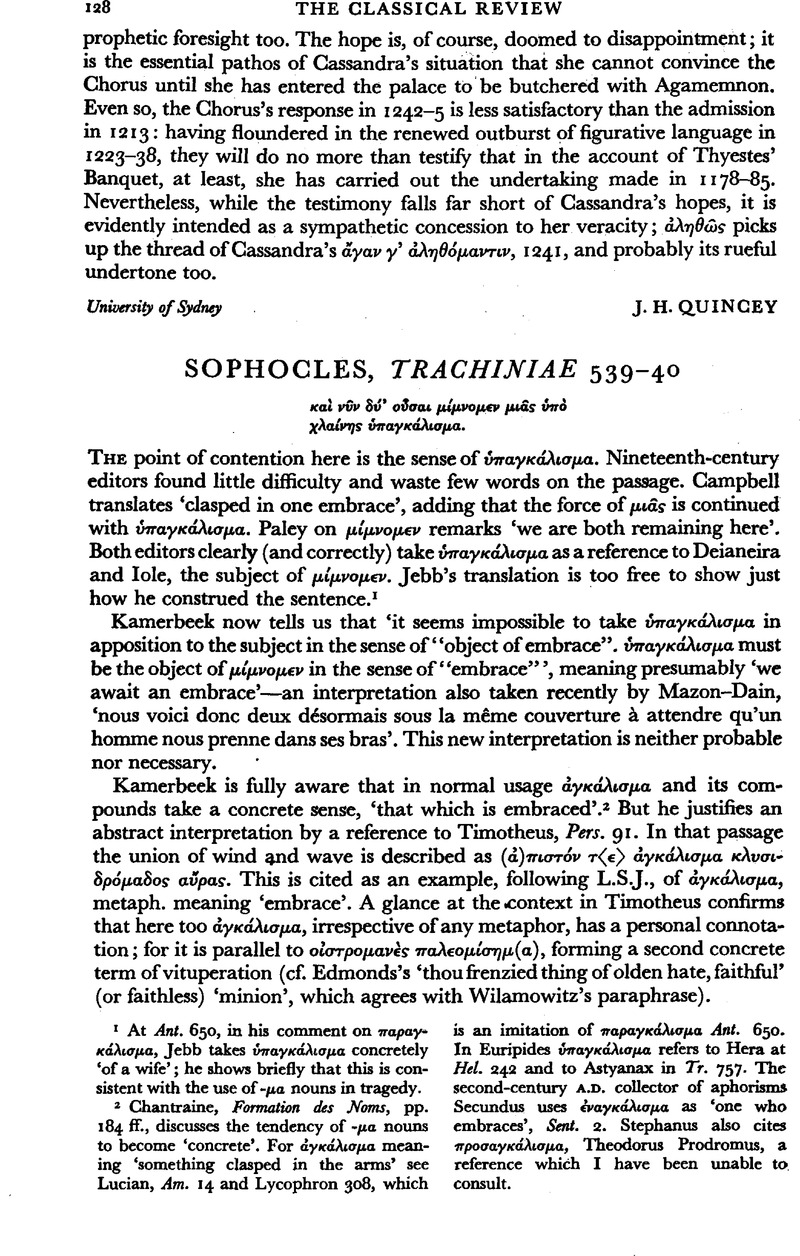No CrossRef data available.
Article contents
Sophocles, Trachiniae 539–40
Published online by Cambridge University Press: 27 February 2009
Abstract

Information
- Type
- Review Article
- Information
- Copyright
- Copyright © The Classical Association 1963
References
1 At Ant. 650, in his comment on παραγκ⋯λισμα, Jebb takes ὑπαγκ⋯λισμα concretely ‘of a wife’; he shows briefly that this is consistent with the use of -μα nouns in tragedy.
2 Chantraine, , Formation des Noms, pp. 184 ff.Google Scholar, discusses the tendency of -μα nouns to become ‘concrete’. For ⋯γκ⋯λισμα meaning ‘something clasped in the arms’ see Lucian, Am. 14 and Lycophron 308, which is an imitation of παραγκ⋯λισμα Ant. 650. In Euripides ὑπαγκ⋯λισμα refers to Hera at Hel. 242 and to Astyanax in Tr. 757. The second-century A.D. collector of aphorisms Secundus uses ⋯ναγκ⋯λισμα as ‘one who embraces’, Sent. 2. Stephanus also cites προσαγκ⋯λισμα, Theodoras Prodromus, a reference which I have been unable to consult.

